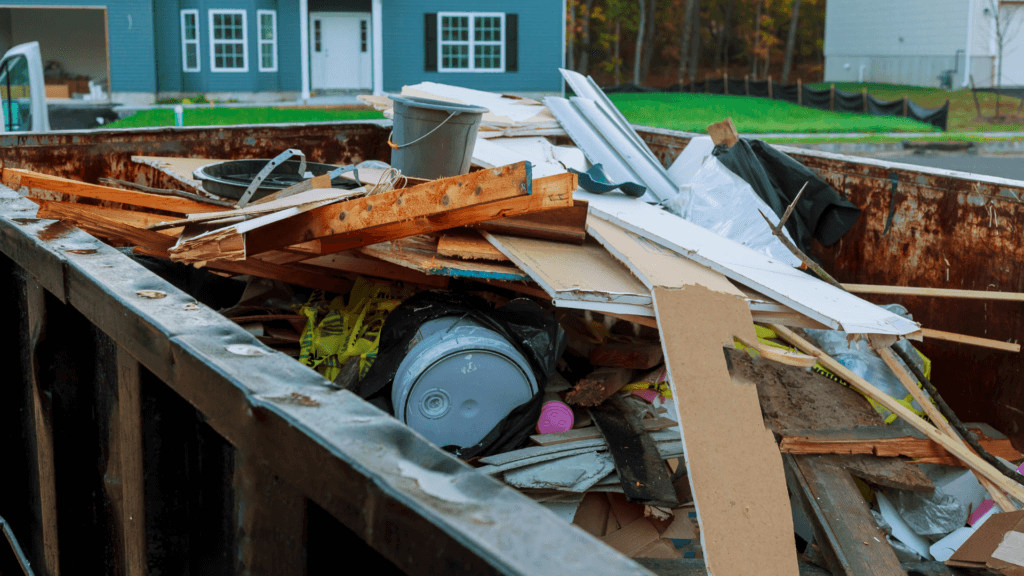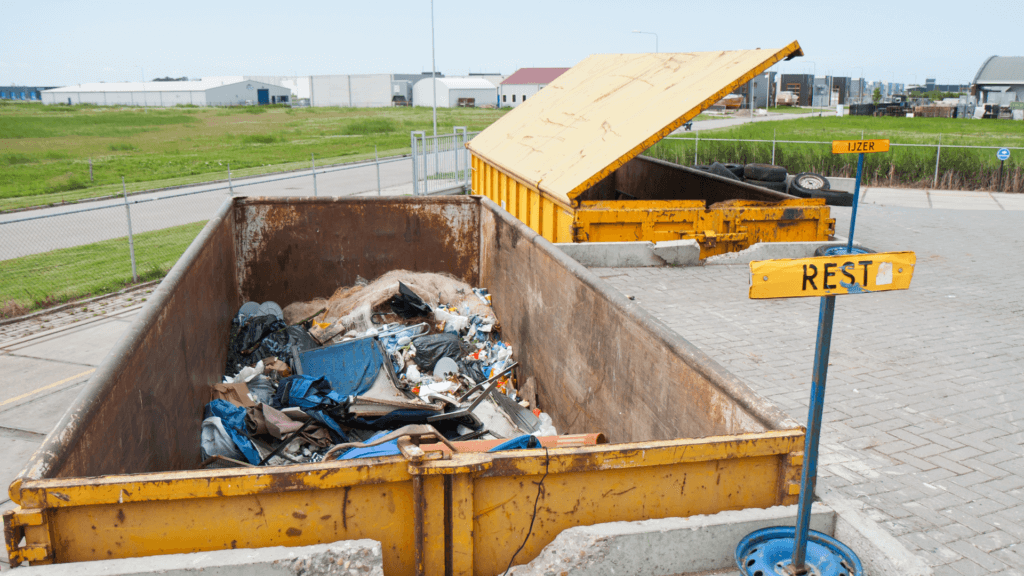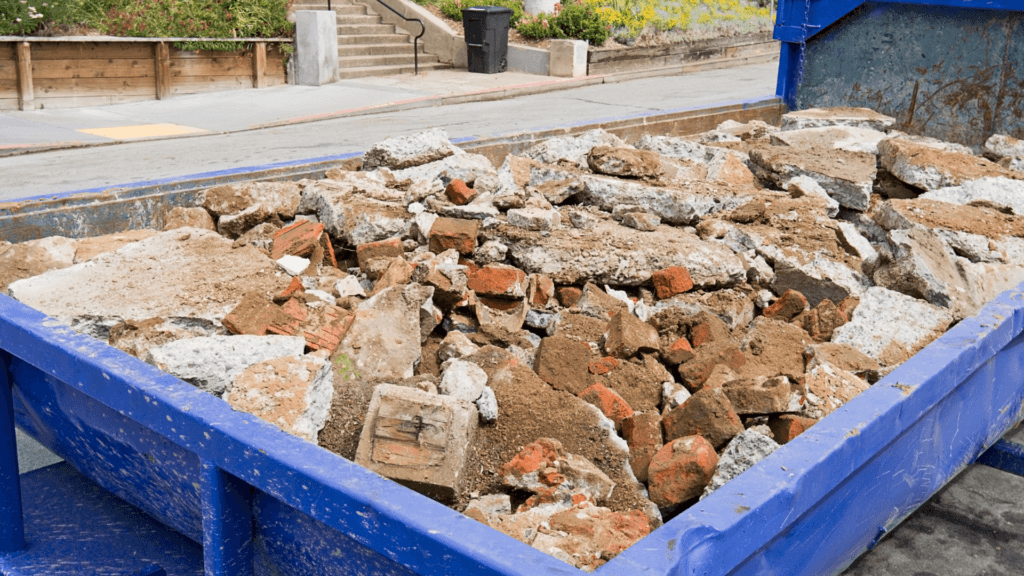The Future of the Roll-Off Dumpster Industry
The roll-off dumpster industry is a world many of us know inside and out. It’s more than just hauling away waste; it’s about providing a vital service to communities and businesses. Understanding where this industry is headed is crucial, not just for the bottom line, but to stay ahead of the curve and offer the best services possible.
Technological Advancements in the Roll-off Dumpster Industry
The roll-off dumpster business, like many other industries, is undergoing a transformation thanks to technology. These advancements aren’t just about making things flashier; they’re about improving efficiency, safety, and environmental responsibility.
The Rise of Smart Dumpsters
- Internet of Things (IoT) and Waste Management: The idea of a dumpster communicating might sound like science fiction, but it’s becoming a reality. Smart dumpsters equipped with IoT sensors can:
- Alert when they’re nearing capacity.
- Signal any maintenance issues.
- Optimize pick-up routes based on real-time data.
This kind of real-time feedback can streamline operations and reduce unnecessary trips, saving both time and fuel.
- Automation and Robotics: The physical demands of the job have always been a challenge. But now, technology is stepping in to lend a hand. Innovations include:
- Robotic arms to assist in lifting heavy items.
- Automated sorting systems to separate recyclables from trash.
- Drones for site inspections and planning.
These tools can reduce the risk of injuries and make the process more efficient, ensuring that waste is managed in the best possible way.
Green Technologies
The environment is a concern for everyone these days. In the roll-off dumpster business, there’s a growing emphasis on reducing the carbon footprint and promoting sustainability.
- Environmentally-friendly Dumpsters: These aren’t your typical bins. Made from sustainable or recycled materials, they’re designed to last longer and have a lesser impact on the planet.
- Eco-friendly Processes: Beyond the dumpsters themselves, there’s a push to make every aspect of the business greener. This includes:
- Using biodiesel or electric trucks for transportation.
- Implementing solar-powered compactors.
- Promoting recycling and composting initiatives.
By embracing these technological advancements, the roll-off dumpster business is not only staying relevant but also paving the way for a more sustainable and efficient future.

Market Dynamics and Growth Opportunities in the Roll-off Dumpster Industry
The roll-off dumpster business isn’t static. As with any industry, it’s influenced by various market forces and trends. Recognizing these dynamics and seizing the accompanying growth opportunities can set a business up for long-term success.
The Role of Urbanization and Construction Trends
- Growing Cities: As more people move to urban areas, the demand for construction and renovation projects increases. This means:
- More waste generated from building sites.
- A higher need for efficient waste management solutions.
- Infrastructure Projects: Governments and private sectors are investing in infrastructure. Roads, bridges, and public buildings all produce waste that needs handling.
Expansion into New Markets and Sectors
- Commercial and Industrial: Beyond residential and construction waste, there’s a vast market in the commercial and industrial sectors. Factories, offices, and retail spaces all generate waste that requires roll-off dumpsters.
- Special Events: Festivals, concerts, and large public gatherings are often short-term but generate significant amounts of waste. Offering specialized services for these events can be a lucrative niche.
Potential of Partnerships and Collaborations
- Teaming Up with Recyclers: By partnering with recycling companies, roll-off dumpster businesses can offer a more comprehensive service, turning waste into something valuable.
- Collaborating with Local Governments: Municipalities often have waste management challenges. By working closely with them, businesses can secure long-term contracts and contribute to community well-being.
- Joint Ventures with Construction Companies: Building a relationship with construction firms can ensure a steady stream of business. As they take on projects, the roll-off dumpster service becomes an integral part of their operations.
Understanding the market dynamics is crucial. By identifying growth areas and being proactive, the roll-off dumpster business can not only survive but thrive in the changing landscape.
Challenges and Solutions for the Future of the Roll-off Dumpster Industry
Every industry faces its set of challenges, and the roll-off dumpster business is no different. However, with challenges come opportunities to innovate and adapt, ensuring the industry remains resilient and forward-thinking.
Regulatory and Environmental Challenges
- Stricter Regulations: As environmental concerns grow, so do the regulations surrounding waste management. This might mean:
- More rigorous standards for waste disposal.
- Increased scrutiny on recycling practices.
- Solution: Staying informed about local and national regulations, attending industry seminars, and investing in training can ensure compliance and reduce the risk of penalties.
Waste Reduction and Recycling
- The Push for Less Waste: There’s a global movement towards reducing waste. While this is great for the planet, it poses a challenge for businesses reliant on waste generation.
- Solution: Diversifying services to include recycling and composting can open new revenue streams. Offering consultancy on waste reduction for clients can also position the business as a valuable partner rather than just a service provider.
Adapting to Changing Consumer Demands and Expectations
- Demand for Transparency: Today’s clients want to know where their waste is going and how it’s being processed. They’re looking for responsible and ethical practices.
- Solution: Implementing tracking systems and providing clients with detailed reports can meet this demand. Embracing green technologies and practices can also enhance the business’s reputation.
- Digital Expectations: In a digital age, clients expect easy online booking, real-time tracking, and digital invoicing.
- Solution: Investing in a user-friendly website and integrating modern software solutions can streamline operations and improve customer satisfaction.
Facing challenges head-on and finding innovative solutions is the key to future-proofing the roll-off dumpster business. By understanding the hurdles and being proactive, the industry can continue to serve communities effectively while evolving with the times.

Sustainability and the Roll-off Dumpster Industry
In today’s world, sustainability isn’t just a buzzword; it’s a necessity. For the roll-off dumpster business, this means more than just managing waste—it’s about ensuring that the entire process, from collection to disposal, is done with the environment in mind.
The Push Towards a Circular Economy
- Beyond Landfills: The old way of doing things—collecting waste and dumping it in a landfill—is becoming less viable. The focus now is on creating a cycle where waste is reused, recycled, or repurposed.
- Benefits: Adopting a circular economy approach can:
- Reduce the strain on landfills.
- Open up new revenue streams from selling recyclables.
- Enhance the business’s image as an eco-friendly service provider.
Innovations in Biodegradable and Recyclable Materials
- New Materials: Research and development are leading to the creation of materials that either decompose faster or can be recycled more efficiently. This impacts the kind of waste the business handles.
- Staying Updated: By keeping an eye on these innovations, the roll-off dumpster business can offer specialized services, like composting for biodegradable waste or partnering with companies that need specific recyclables.
Community Engagement and Corporate Responsibility
- Educational Initiatives: One of the best ways to promote sustainability is through education. Offering workshops or informational sessions on waste reduction and recycling can position the business as a community leader.
- Partnerships with Local Organizations: Collaborating with schools, NGOs, and other community groups can amplify sustainability efforts. Whether it’s a neighborhood clean-up drive or a recycling campaign, these partnerships can make a significant impact.
Sustainability is the future. For the roll-off dumpster business, this means evolving practices, embracing innovations, and actively participating in creating a greener world. By doing so, the industry not only ensures its relevance but also contributes positively to the planet and its communities.

A Brighter Tomorrow for the Roll-off Dumpster Business
As the landscape of the roll-off dumpster business continues to shift, one thing remains clear: the future is promising. By embracing technological advancements, understanding market dynamics, tackling challenges head-on, and prioritizing sustainability, the industry is poised for growth and positive impact. The journey ahead is not just about managing waste—it’s about leading the way in environmental responsibility and community service. With dedication and innovation, the roll-off dumpster business is set to shine brighter than ever in the days to come.
FAQs
1. How are technological innovations shaping the future of the roll-off dumpster business?
Technological innovations, such as smart dumpsters equipped with IoT sensors and automation in waste collection, are streamlining operations, improving efficiency, and enhancing safety. Additionally, green technologies are promoting sustainability and reducing environmental impact.
2. What market trends are expected to drive growth in the roll-off dumpster business?
Urbanization and the associated rise in construction projects are significant drivers. Additionally, expansion into commercial, industrial, and special event sectors presents growth opportunities. Collaborations and partnerships with recyclers, local governments, and construction companies can also spur growth.
3. How is the roll-off dumpster business addressing environmental concerns for the future?
The industry is moving towards a circular economy model, focusing on reusing, recycling, and repurposing waste. Innovations in biodegradable and recyclable materials are being adopted, and there’s a push for community engagement and educational initiatives to promote sustainability.
4. Are there new sectors or industries the roll-off dumpster business is expected to expand into?
Yes, beyond the traditional sectors, there’s potential growth in handling waste from commercial spaces, factories, and special events like festivals and concerts. Offering specialized services for these sectors can open new revenue streams.
5. How are regulatory changes impacting the future of the roll-off dumpster business?
As environmental concerns grow, regulations surrounding waste management are becoming stricter. This means businesses need to stay informed and adapt to ensure compliance. While this poses challenges, it also offers opportunities for businesses to position themselves as leaders in responsible waste management.


